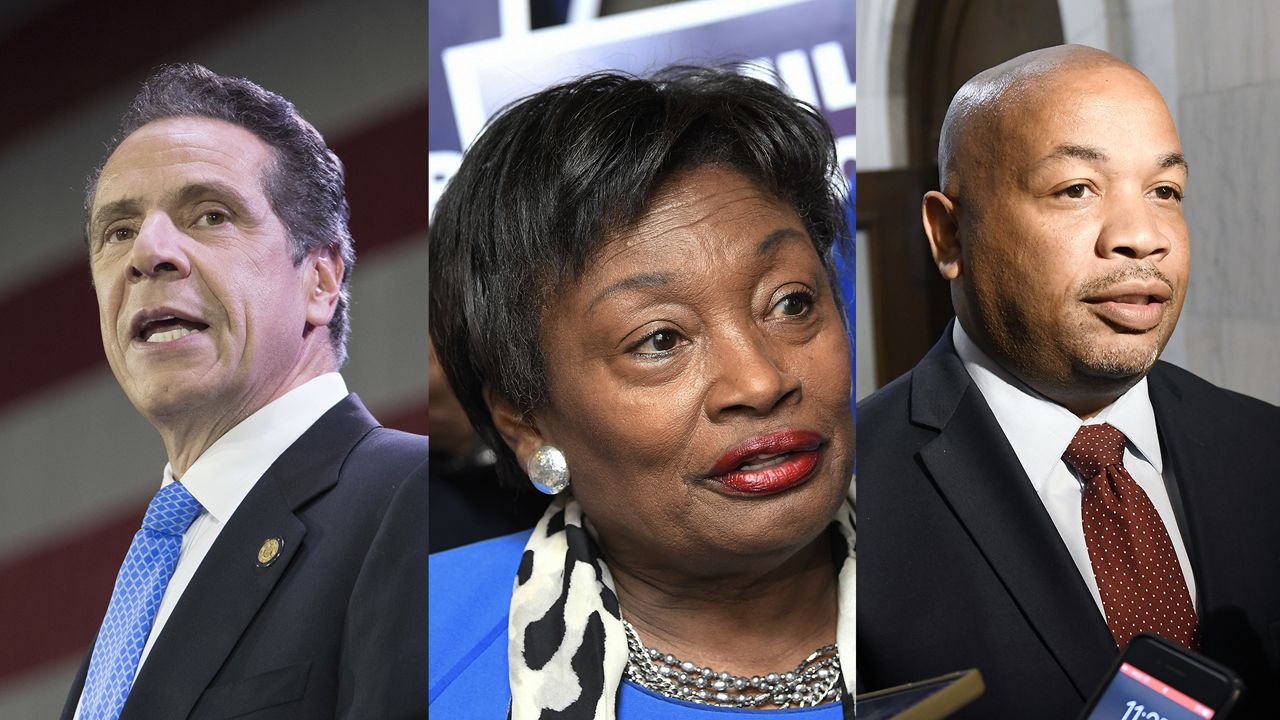Elected officials in New York are on track to receive salary increases for the first time in decades based on the recommendations approved Thursday by a compensation commission composed of current and former comptrollers.
WHAT PAY RATES ARE THE COMMISSION RECOMMENDING?
The pay commission backed pay raises for the governor, the lieutenant governor, attorney general, and state comptroller as well as the 213 members of the state Assembly and Senate, as well as cabinet officials in the governor's administration.
At the same time, the compensation commission backed limits to how much lawmakers can earn in the private sector, placing a cap of 15 percent of their public salary. The commission also backed ending stipends, or "lulus," for most leadership positions in the state Assembly and Senate.
The limit on outside income would take effect at the end of 2020.
It's not clear if the commission itself, approved by the legislature and governor earlier this year to review the salaries of elected officials, can institute such change without another vote of the legislature.
Under the recommendations outlined on Thursday, the governor would be paid $250,000 by 2022, up from the current $179,000. Lawmakers would also receive a phased-in hike from $79,500 to $130,000 by 2021.
The median household income in New York is $62,909.
PROPOSED PAY RATES
Governor:
Current: $179,000
2019: $200,000
2020: $225,000
2021: $250,000
State legislators:
Current: $79,500
2019: $110,000
2020: $120,000
2021: $130,000
A POTENTIAL RAISE FOR THE FIRST TIME IN 20 YEARS
For lawmakers, the pay raise would be the first pay raise in 20 years. Pay hikes for lawmakers have long been tied up in politics, with the last salary increase linked to an expansion of charter schools and a reform that stipulated lawmakers would not be paid while the budget was left unapproved after the start of the new fiscal year.
In subsequent years, pay raise pushes have fallen flat. Judicial pay, which had been increased in tandem with legislative salaries, was decoupled from this process and subjected to a pay commission.
The legislative pay commission was formed as a means of removing politics from the matter, but also insulating lawmakers from taking a vote for an issue that is likely anathema to voters for a legislature known for its parade of corruption arrests in recent years.
Still, lawmakers have been increasingly vocal about the need for a pay raise. Assembly Speaker Carl Heastie told the pay commission last week that many of his members face middle class financial concerns, such as student debt, caring for children, and aging family members.
Many lawmakers — especially those from high-cost areas in and around New York City — have long argued that their pay hasn't kept up with inflation and doesn't reflect work they do outside of the six-month legislative session. But those same lawmakers have been reluctant to vote themselves a pay raise, especially following a number of high-profile political corruption convictions in recent years.
About a third of all lawmakers earn a significant amount of money from outside work. The proposals suggested by the committee are similar to the rules for members of the Congress.
Similar proposals have been blocked in the Senate in the past, but that chamber's new leader, Sen. Andrea Stewart-Cousins, D-Yonkers, said Thursday that she believes her colleagues would support a cap on outside pay. Democrats won control of the Senate from Republicans in last month's elections.
"My Senate Democratic colleagues and I continue to support that,'' she said in a statement.
Good-government groups have long pushed for broader reforms to be included with any salary increase. Blair Horner, director of the New York Public Interest Research Group, said Thursday that New Yorkers aren't likely to support an increase in legislative salaries that doesn't come with greater ethics reforms.
"I think it will resonate poorly,'' he said of the pay hike.
The four-member pay committee is made up of State Comptroller Thomas DiNapoli; New York City Comptroller Scott Stringer; SUNY Board of Trustees Chairman Carl McCall, who is also a former state comptroller; and former New York City Comptroller Bill Thompson.
The official report is due Monday, but barring any action by the legislature, these recommendations will automatically take effect. One person who is not happy about the change is Assembly Speaker Carl Heastie, who argued just last week that the charge of the committee was to consider compensation only, not outside income.



